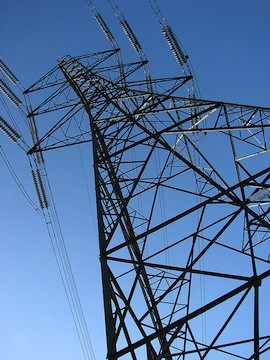Consumer Advocates Demand Audit of Worcester Smart Grid Program
Tuesday, August 26, 2014
Nicholas Handy, GoLocalWorcester Contributor
 After the Worcester Zoning Board of Appeals approved for the National Grid to erect sound barriers on the north and south walls of the Cook’s Pond substation, consumer and anti-smart grid advocates have demanded that the company’s smart grid pilot program be audited.
After the Worcester Zoning Board of Appeals approved for the National Grid to erect sound barriers on the north and south walls of the Cook’s Pond substation, consumer and anti-smart grid advocates have demanded that the company’s smart grid pilot program be audited.
These advocates are demanding an audit for the smart grid system in Worcester for a variety of reasons including security, safety, privacy, exorbitant cost, greenwashing, and health issues.
“There have been significant delays with the pilot program, which indicates increased costs over time for salaries, outreach, advertising, etc. as well as mitigation that is now required at the Cook's Pond Substation,” said Patricia Burke, a member of HaltMAsmartmeters. “The community has the right to know what those costs are and who is going to pay for them. This pilot was supposed to be co-created with the community.”
Emails were sent into the Department of Public Utilities but were not answered. Anti-smart meter groups have criticized the DPH and the smart grid program for behind-closed-doors dealings, lack of environmental and health monitoring, and deleterious impacts on property values.
Concerns for Ratepayers
While much of their focus has been on the potential health effects and privacy concerns of the smart grid program, consumer advocates are calling for this audit because of a lack of oversight with the project.
According to Burke, the DPU has mandated smart meters as the cornerstone to grid modernization, but informed residents are beginning to question the entire process because of lack of oversight, lack of informed consent, lack of health and environmental monitoring, and lack of advocacy for residents.
 “Without scrutiny by citizens, energy investments being justified to address the health and environmental impacts of the fossil fuel model may cause more damage that the fossil fuel model,” said Burke. “This also includes the gas pipeline. These large-scale poorly-vetted projects may be obsolete before they are even paid for, as well as unsafe at any cost.”
“Without scrutiny by citizens, energy investments being justified to address the health and environmental impacts of the fossil fuel model may cause more damage that the fossil fuel model,” said Burke. “This also includes the gas pipeline. These large-scale poorly-vetted projects may be obsolete before they are even paid for, as well as unsafe at any cost.”
Working with the Community
According to the National Grid, working with members of local communities is something they try to do when implementing any project, whether in Worcester or anywhere else that they cover.
National Grid says that the sound barriers in question are not affiliated with the smart grid program in Worcester. Additionally, National Grid says that both of these projects have been collaborations with the city rather than one-sided proposals.
“National Grid is currently working closely with our neighbors and the City of Worcester to develop a sound and visual screening plan for our Cook's Pond substation,” said Jake Navarro, a spokesperson for National Grid. “We continue to work with neighbors on the existing vegetation and landscaping in an effort to reach the best available solution while ensuring safe and reliable service for our customers in this neighborhood as well as those receiving electrical service from this substation.”
 Delivered Free Every
Delivered Free Every
